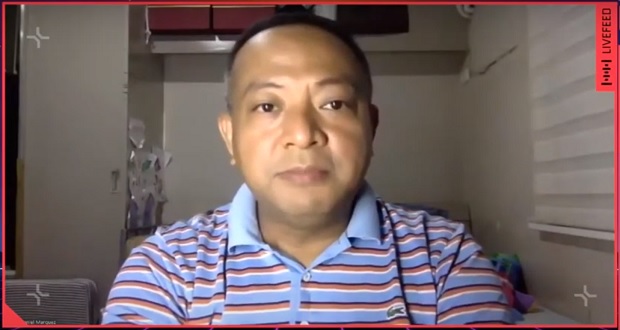The private contractors of the VSAT project of the Department of Information and Communications Technology (DICT) are considering filing a libel case against former undersecretary Eliseo Rio Jr. for his online posts attacking the initiative.
The DICT deployed the project pursuant to “Bayanihan to Recover As One Act” as a way to provide VSAT (very small aperture terminal) satellite services for quarantine centers and medical facilities in remote areas of the country.
In a series of posts on Facebook that started last Sunday, May 30, Rio has lambasted the P466-million project as highly anomalous.
Jojo Maddatu, president of private contractor We Are IT (WIT), said during the broadcast of the online show TECH SABADO on Saturday, June 5, that his company and three other suppliers in the satellite-based Wi-Fi project are studying their legal options after becoming the subject of Rio’s criticisms.
“All we did was just to submit a quote for the project and then we get this. It’s just unfair. That’s why we are talking to our lawyers if we can file a case against [usec Rio]. I think we need some public apology because of all the things he is saying. Every time he goes to Facebook, he always says ‘favoured suppliers’. But what did we do? We just submitted a quote and then suddenly we get branded as favoured suppliers,” Maddatu said.
Maddatu said if there’s an anomalous project that should be exposed by Rio, it should be the P1.8-billion “Pipol Konek” free WiFi project that the DICT and United Nations Development Programme (UNDP) awarded to Australian networking firm Speedcast. The DICT has rescinded the project because of numerous delays and the filing for bankruptcy by Speedcast.
Nathaniel Marquez, founder and CEO of eBizolution, another supplier for the project, said it was untrue that the awarding procedure was rigged and did not go through the right process.
Marquez, a former top executive of tech giant IBM before putting up eBizolution, said the VSAT suppliers submitted their proposals when the DICT issued a request for quotes.
This, he said, is unlike the DICT-UNDP project, which was actually a negotiated bid awarded to a single foreign contractor.
“I hope usec. Rio would be more circumspect in dragging our names because we are responsible businessmen. This is also missionary work on our part. This is not just about the money,” Marquez said.
Aside from WIT and eBizolution, the other contractors in the VSAT project are Philcomsat and iOne Resources Inc.
Sought for comment, Rio told Newsbytes.PH that he was not casting doubts on the capability and integrity of the local suppliers. “I never imputed anything on the contractors. I was questioning the processes of DICT,” he said.
“I am not blaming any contractor on anything, they just followed the requirements of DICT. It is DICT that I am questioning: why the selection only favors VSATs when other less expensive technologies are present?
Rio also said he did not claim the contracts were overpriced, although he noted that they are more expensive than the rates provided by telcos or Internet service providers in the area.
He pointed out the quarantine facilities are found in the centers of gravity of the pandemic and are mostly located in urban areas where other telcos and ISPs are present.
“VSATs are only cost-effective in geographically isolated and disadvantaged areas (GIDAs) where there are no other telcos/ISPs are serving these areas. VSATs are the most expensive means of accessing the internet and the last resort only if no other means are available. This is not the case for areas where these facilities are located. All installations of the UNDP VSATs are in GIDAs where there no other telco/ISPs present,” he said.
Rio said the VSAT project should also not be compared to the DICT-UNDP initiative. “The latter was implemented before Covid-19, all VSATs to be located in GIDAs, some without electricity and therefore solar panels will be used. In these areas, Internet data utilization is more important than internet speed.
“The network design and its utilization is totally different from the MIS-VSAT which is mainly for use during the Covid-19 pandemic. But again why only for 5 months when the pandemic can take years?” he said.
The VSAT contractors have said they do not know the reason or wisdom behind the five-month duration of the project although they are hoping the term would be extended.




